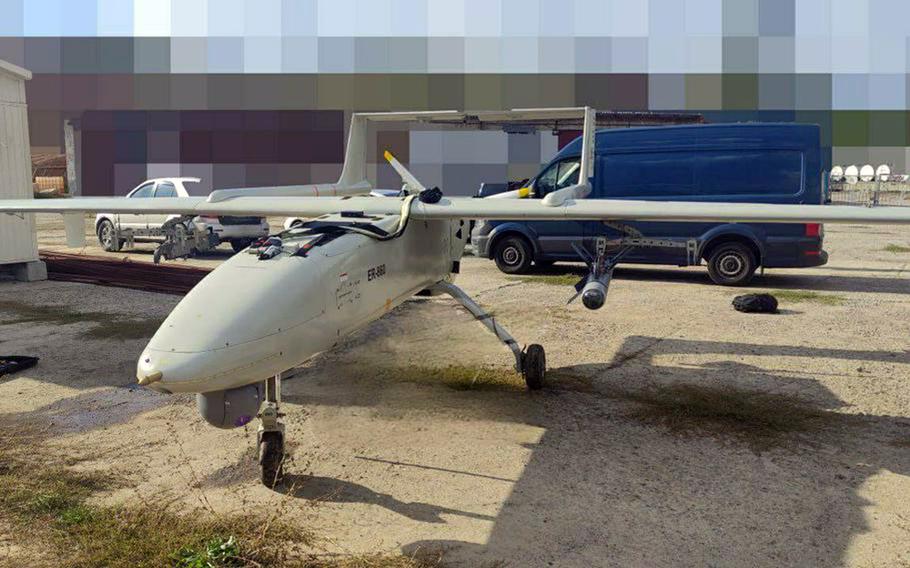
An Iranian Qods Mohajer-6 drone, from a photo posted on Twitter by the Ukrainian Defense Ministry in October 2022. The U.S. government sanctioned Iranian companies on Nov. 15, 2022, based on allegations of involvement in the delivery of aerial drones to Russia. Moscow has used them in attacks against Ukraine. (Twitter/ Ukraine Defense Ministry)
The U.S. blacklisted more than a dozen companies it says are helping Iran sell millions of dollars’ worth of petroleum products to China, days after the Treasury Department levied sanctions on Iranian groups delivering military drones to Russia.
The 13 firms sanctioned over the oil dealings are based in the United Arab Emirates, China and Hong Kong. They are accused of using front companies and altering invoices to hide their financial work with Iranian oil firms, according to a Treasury Department statement issued Thursday.
“Today’s action further demonstrates the complex sanctions evasion methods Iran employs to illicitly sell petroleum and petrochemical products,” Brian Nelson, undersecretary for terrorism and financial intelligence, said in the statement.
The companies listed in Thursday’s sanctions are: Access Technology Trading, Monch General Trading, Asian Zone Trading, Galaxy Petrochemical, Sum Five Petrochemicals Trading and Newton Trading, all in the UAE; Highline Logistic, Uteliz Resources, Barza Style & Mode, Torgan and Aeonian Complex, all in Hong Kong; and China-based companies Zhejiang Wonder and East Asia Trading Import and Export.
The sanctions came on the same day that the International Atomic Energy Agency, the United Nations’ nuclear watchdog group, censured Iran for stonewalling a probe into its nuclear program, for which Tehran claims to have peaceful intentions.
Thursday marked the third consecutive day that the U.S. attempted to financially target Iran, which is locked in a cold war against U.S. allies in the Middle East.
The U.S. has repeatedly targeted what it calls Iran’s illicit petroleum and petrochemical trade, which some experts and politicians say funnels money to Tehran’s Revolutionary Guard, which in turn funds regional militant groups.
On Wednesday, the U.S. announced sanctions against senior officials of the Islamic Republic of Iran Broadcasting, alleging that they have aired hundreds of forced confessions as part of Tehran’s crackdown on protests in the country.
Protesters angered by the death of a woman in police custody in September have taken to the streets across Iran. The network televised confessions in which people said their relatives had not been killed by Iranian authorities during the protests, but instead died of unrelated causes, the Treasury Department’s statement said.
On Tuesday, the U.S. sanctioned Iranian companies it says are involved in the delivery of aerial drones to Russia, which Moscow has used in attacks against civilian infrastructure in Ukraine.
Another incident involving Iran occurred Monday, when ships from the U.S. 5th Fleet seized more than 170 tons of explosive-making chemicals on a fishing boat in the Gulf of Oman. The U.S. accused Iran of “an unlawful transfer of lethal aid.”